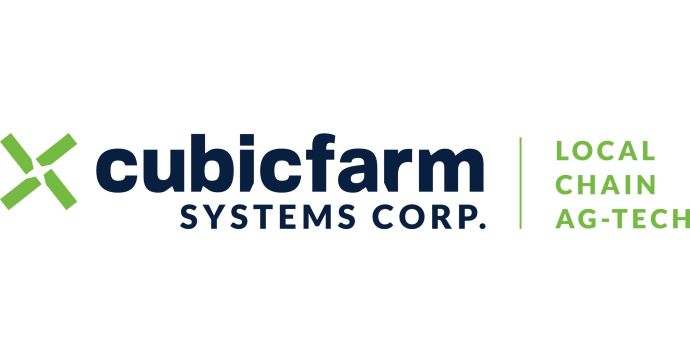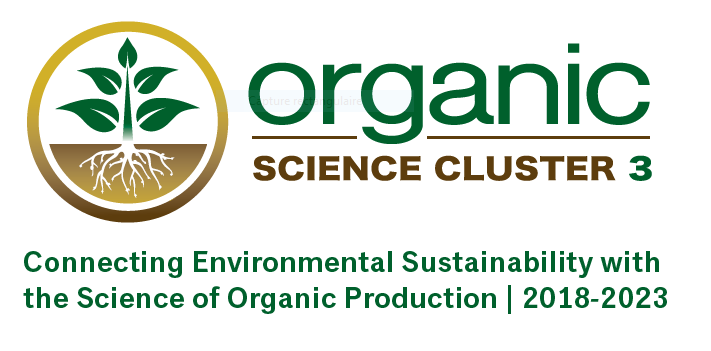

Students plan, conduct, analyze, and present an applied experimental research project over the course of three semesters.
Sustainable Agriculture Student Research Project Archive

Filter by year:
2018 | 2019 | 2020 | 2021 | 2022 | 2023 | 2024 | 2025
Mow and cover: Cover crop management using no-till practices in a market gardenBenjamin Alles, 2022
| |
Mustard seed meal, black soldier fly frass, spent mushroom manure compost, and Metarhizium brunneum for wireworm management in Hakurei turnipsChelsea Allison, 2021
| |
Effects of wood compost on soil health indicators in an organic loamSabrina Anderson, 2019
| |
Effect of mowing on Sphagnum regeneration in a disturbed peat bogRue Badanic, 2022
| |
Baseline insect survey at Garden City Lands Miyawaki ForestRue Badanic, 2025
| |
Effects of compost, biochar, and Gurbani on bean vigour over two generationsAnupjot Badesha, 2025
|
|
Spent mushroom compost as a replacement for peat in growing mediaAlex Bisset, 2021
| |
Effects of mowing on Sphagnum regeneration in a degraded peat bogMichael Bomford, Rue Badanic, and Jordan Roper, 2023
| |
Growth substrate effect on lion’s mane (Hericium erinaceus) mushroom yieldSteph Bulman, 2022
| |
Effects of flax variety and planting density on seed and fibre yieldKayla Buttress, 2024
| |
Effects of biodegradable mulch on dryland riceShannon Campbell, 2025
|
|
Interaction between biochar amendment rate and feather meal fertilizer application on cabbage growthTobias Carl, 2024
| |
Do black plastic mulch and Metarhizium brunneum interact to protect beets from wireworm feeding?Rachel Cassidy, 2025
|
|
Wireworm control in scallions: Attract-and-kill tactic using Metarhizium brunneum granules and rolled oatsHazel Chan, 2018
| |
Potential of halophyte phytoextraction for saline soil remediationSarah-Jane Copeland, 2020
| |
Coconut coir as potting soil alternative to peat: Biochar, wool pellets, and wollastonite as soil amendmentsSylka DiBiase, 2024
| |
Effect of cut seed tubers and Metarhizium brunneum on wireworm damage in potatoLindsay Dodds, 2018
| |
Effects of laser irradiation, organic fertilizer, and adjuvant on corn and cucumber yieldNikita Ershov, 2020
| |
Effect of soil solarization on chickweed (Stellaria media) seed viability across burial depthsElyse Farmer, 2025
| |
Effect of Metarhizium brunneum application method on wireworm damage to potatoJenna Graham, 2019
| |
Effect of Ascophyllum nodosum seaweed extract and powder on vegetative growth characteristics and foliar nutrient content of Vitis spp. hybrid cv. L’Acadie BlancRob Hines, 2020
| |
Effect of fine cement sand and zeolite amendment on rye (Secale cereal) biomass accumulation in two local soilsPiper Kenney, 2018
| |
Effect of intercropping wheat and rye on grain yield and protein contentMuhammad Koodoruth, 2023
| |
Growing medium and fertilizer effects on microgreensManon Lee, 2023
| |
Effects of biostimulant and mycorrhizal inoculant applications on dry direct-seeded riceNaomi Mallare, 2024
| |
Spent mushroom substrate for water conservation in squash productionMaria Jose Santander Mercado, 2020
| |
Intercropping dryland rice and greens for weed suppressionNhi Nguyen, 2023
| |
Seed and oil yield from canola in Richmond, BCC. J. Nyereyegona, 2021
| |
Fresh spent mushroom compost mulch effect on bean, broccoli, salsola, and squash growth, weed suppression, and broccoli yieldJames Oswald, 2020
| |
The effect of layering soil over degraded peatlands on carbon dioxide emissionsTalia Parfeniuk, 2024
| |
Soil respiration on either side of the dyke across the Garden City LandsTalia Parfeniuk, Rue Badanic, and Michael Bomford, 2025
| |
Soil respiration beneath northern highbush blueberry and indigenous plants at Burns BogTalia Parfeniuk, Rue Badanic, and Michael Bomford, 2025
| |
Early application of Metarhizium brunneum for management of wireworm in popcorn, Zea mays var. evertaJames Reinert, 2020
| |
Leaf mold as renewable alternative to peat in seed starting mediaRosina Rodighiero, 2019
| |
Dose response of basil and kale seedlings to black soldier fly frass in growing mediaOliver Rondou, 2023
| |
Efficacy of fungicides available for powdery mildew control in certified organic squash productionJordan Roper, 2019
| |
Evaluation of eleven summer cover crops for suitability to southwest British ColumbiaAngeli dela Rosa, 2018
| |
Intercropping drying beans with oyster mushrooms and its effects on bean yieldElise Ryan, 2025
| |
Effect of pre-germination laser treatment on lettuce cultivated in a controlled environmentEthan Simonyi-Gindele, 2021
| |
Season extension of ever-bearing strawberry in the Pacific NorthwestAlexander G. B. Stark, 2018
| |
Using agrovoltaics to shade bok choy varietiesAmanda Tam, 2023
| |
Yield effect of flax (Linum usitatissimum) and chickpea (Cicer arietinum) intercroppingMoira Tarry, 2022
| |
Effects of flooding and paper mulch on Fraser Valley riceWendel Vistan, 2023
| |
Trialing edamame varieties and mulch in Richmond, B.C.Naomi Waite, 2024
| |
Impact of in-row living mulches on tree growth, soil moisture and weed management in an organic high-intensity apple orchardFrancisca Weeks, 2024
| |
Cucumber response to black and silver mulchesJacob Wen, 2023
| |
Living and non-living mulch effects on ground beetles and weeds in a new apple orchardHarrison Wu, 2023
|
Funding and Support:
- Anaconda Systems
- City of Richmond
- CubicFarm Systems
- Enterra
- Garden City Conservation Society
- Highline Mushrooms
- KPU Student-Led Research Grants
- Metro Vancouver Regional Parks
- Organic Path International
- Organic Science Cluster III
- Osake Craft Sake
- Preterra BioCarbon Solutions
Image

| Image

|
 |  |
Image

|  |
 | Image

|
 |  |
Image

| Image

|